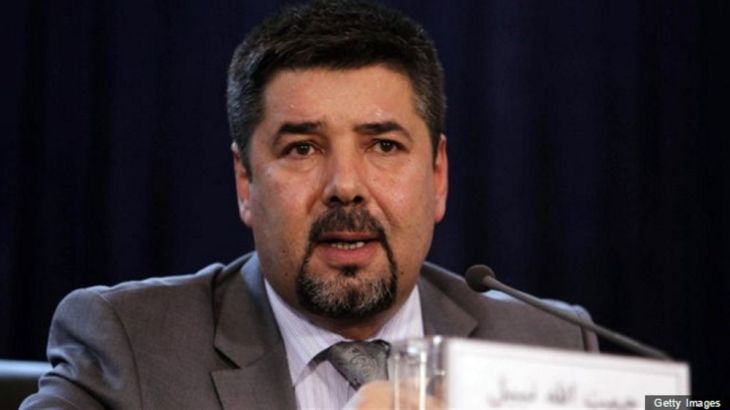Afghan intelligence chief quits over Pakistan ties
Rahmatullah Nabil cites “lack of agreement on policy matters” and criticises President Ghani’s latest visit to Pakistan.

The head of Afghanistan’s intelligence service has resigned, saying Pakistan cannot be trusted.
Rahmatullah Nabil, the National Directorate of Security chief ,quit in protest on Thursday, a day after President Ashraf Ghani visited Pakistan for security talks.
Keep reading
list of 4 itemsHas the Taliban kept its promises in Afghanistan?
Ghani unlikely to have fled Kabul with millions in cash: Report
Afghan ex-President Ghani defends decision to flee the country
The resignation comes amid a string of major Taliban attacks, including a 27-hour siege of Kandahar airport this week which left more than 70 people dead.
In his resignation letter, Nabil cited “a lack of agreement on policy matters” and restrictions imposed by the president which he alleged had impaired his ability to do his job.
READ MORE: Assault casts doubt on Afghan security preparedness
The assault on the airbase was under way as he attended the Heart of Asia conference, a regional meeting this year hosted by Pakistan.
Nabil criticised Ghani’s move in a Facebook post.
“Our innocent countrymen were being martyred and beheaded in Kandahar airfield at the moment when [Pakistan] Prime Minister Nawaz Sharif once again said Afghanistan’s enemy is Pakistan’s enemy,” he wrote.
Ghani’s willingness to visit Pakistan signalled a renewed push to mend cross-border ties, which could help to jump-start peace talks with the Taliban.
Pakistani authorities hosted peace talks in early July. But the second round of talks were indefinitely postponed following news of the death of Mullah Omar, the group’s leader.
In an audio message released this month, purportedly by Mullah Akhtar Mansoor, Omar’s successor, Mansoor said the Taliban “won’t agree to have peace talks if our demands are not met” – including the implementation of Islamic law in Afghanistan.
In September, Taliban fighters commanded by Mansoor took control of Kunduz city in northern Afghanistan and held it for about two weeks.
The developments have dealt a major setback to the country’s NATO-trained security forces and highlight the Taliban’s potential to expand beyond its rural strongholds.